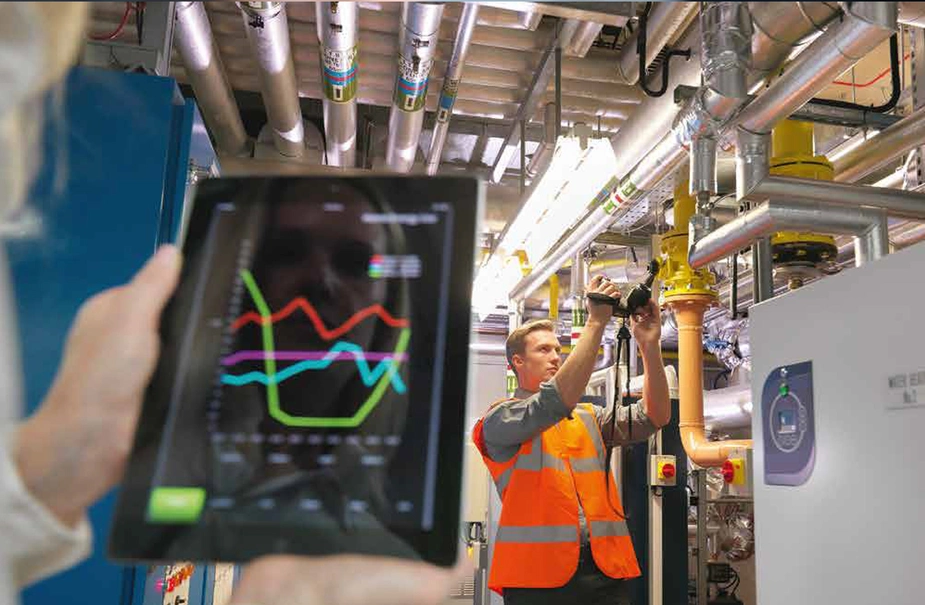The energy planner
Together an energy concept is being developed at the site, which focuses on saving
Researchers at Adlershof study infrastructure provision to an entire technology, science and residential district. It’s the first time a study of this size has been conducted in Germany.
Adlershof is growing. More and more companies and research facilities, with a broad variety of business models and needs, are moving into the 4.2 square kilometre Johannisthal/Adlershof urban development area. The former Schöneweide railway yard nicknamed Gleislinse is currently being developed as a means to expand the high-tech site. More than two kilometres of new streets will be laid to make room for more businesses to settle here over the coming years.
The energy concept is an important part of infrastructure planning. Pipes for heating have to be laid, gas and electricity lines extended. The site managers of WISTA-MANAGEMENT GMBH want to offer newcomers the utmost flexibility, the greatest possible variety of energy sources and, at the same time, incentives to save energy. Utility companies will also receive detailed specifications regarding the required energy needs.
“There is a central question for energy planning: How much and what form of energy will new companies need?”, explains Frank Wittwer, Infrastructure Provision Project Manager at Adlershof Projekt GmbH, the development agency which acts in Adlershof as trustee for the federal state of Berlin. “Will they use district heating or solar heat, or will they operate their own CHP or natural gas heat? Perhaps they’ll even produce their own energy and feed the extra into the grid?” Wittwer works closely with the utilities Vattenfall, GA-SAG/NBB Netzgesellschaft Berlin-Brandenburg and the BTB Blockheizkraftwerks-Träger- und Betreibergesellschaft mbH Berlin. Together they hope to implement an integrated energy concept at Adlershof.
The goal is to save 30 percent in primary energy by the year 2020. The Hochschule für Technik und Wirtschaft Berlin (HTW) university of applied sciences has hitched itself to the WISTA “Energiestrategie Berlin Adlershof 2020” project. This is the first time in Germany that the energy infrastructure provision of such a complex site with technological, scientific and residential usage will be researched scientifically. “Adlershof should create a model for other large technology and commercial sites”, Wittwer believes.
The engineering firm BBP Bauconsulting is responsible for the initial planning steps. One major challenge for Project Lead Matthias Gaudig is the complex energy infrastructure on the campus. “There is a huge range of electricity needs, from companies that get by with four kilowatt-hours per square metre per year to those with energy-hungry data processing centres using up to 400 kilowatt hours per square metre per year”, explains Gaudig. At the energy concepts behind them are also quite diverse.
By Mirko Heinemann for Adlershof Special
